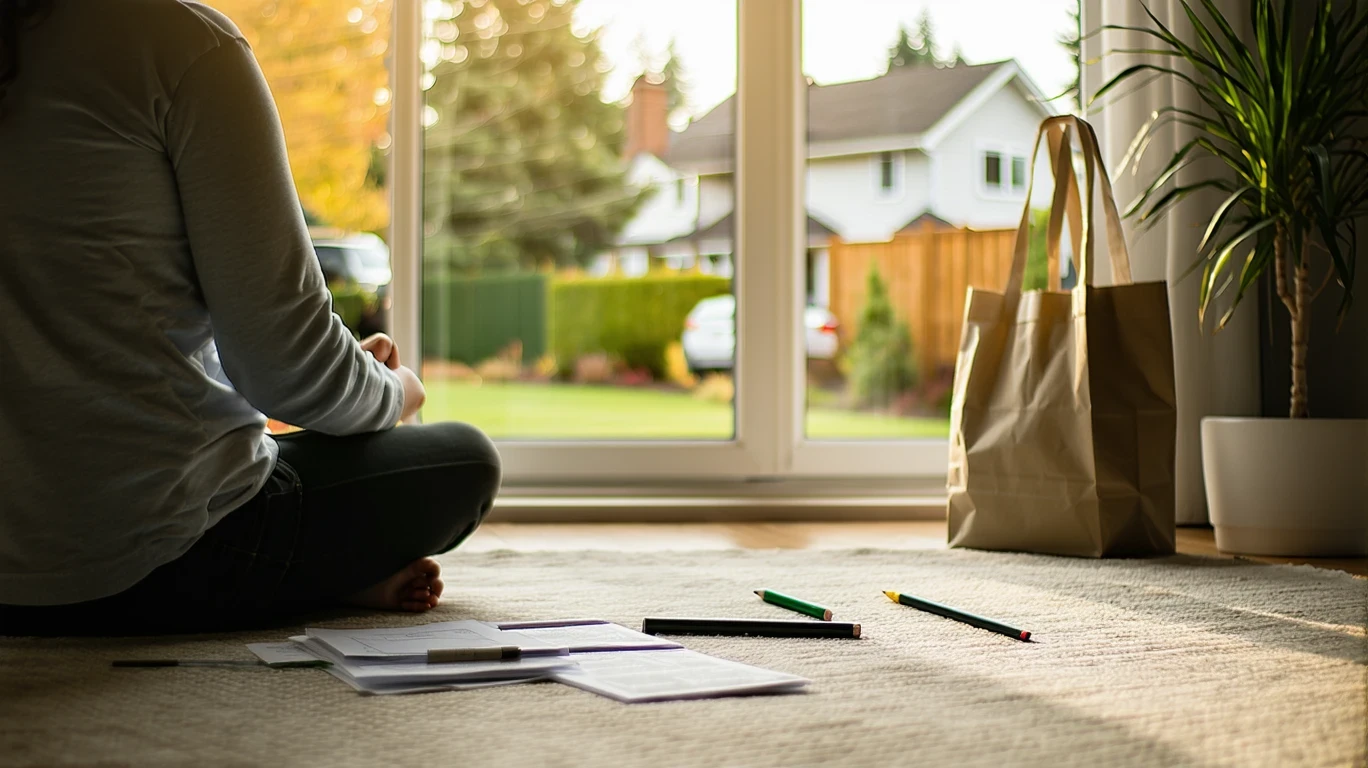
Budgeting Smarter in Sherwood
Whether you’re a new mover or long-time resident, understanding how your monthly expenses break down is key to financial stability in Sherwood. In this city, housing and electricity often make up more than 55% of a household’s budget. But depending on your lifestyle, your monthly budget in Sherwood can look very different. Here are some typical examples to help you estimate costs based on your situation.
Let’s start by walking through the monthly budget of our first example resident, Jasmine. She’s 27, single, rents an apartment, and works remotely earning $3,000 per month in gross income. Here’s how Jasmine’s expenses break down:
- Rent: $1,200
- Utilities: $150
- Groceries: $400
- Transportation: $100
- Miscellaneous: $300
- Savings: $300
Jasmine’s rent consumes 40% of her monthly income, which is on the high end but manageable for her budget. She saves on transportation by working from home. After covering her essential costs and setting aside some savings, Jasmine has about $550 left each month for discretionary spending and additional savings goals.
What Real Budgets Look Like in Sherwood
Now let’s compare Jasmine’s budget breakdown to a few other common household situations in Sherwood. The table below shows monthly expenses for a dual-income couple and a family of four homeowners.
| Expense | Jasmine Single Renter $3,000/mo | Sam & Elena Dual-Income Renters $7,000/mo | The Ortiz Family Homeowners, 2 Kids $9,500/mo |
|---|---|---|---|
| Rent/Mortgage | $1,200 | $2,000 | $2,800 |
| Utilities | $150 | $250 | $450 |
| Food | $400 | $800 | $1,200 |
| Transportation | $100 | $500 | $800 |
| HOA/Fees | $0 | $200 | $350 |
| Miscellaneous | $300 | $800 | $1,200 |
| Savings | $300 | $1,000 | $1,500 |
These estimates reflect common lifestyle costs in Sherwood.
Sam and Elena have a higher housing budget that lets them afford a larger rental suited for two. They also spend more on transportation since they both commute to work. The Ortiz family’s costs are substantially higher across all categories, but they’re able to comfortably cover expenses and savings with their $9,500 in gross monthly income.
Biggest Cost Drivers
As you can see, housing is the biggest chunk of most Sherwood budgets, whether renting or owning. Utilities are another significant cost, especially electricity. In Sherwood, the cost of utilities can rise substantially in summer due to A/C use. Many newer rental properties also have HOA fees that can add $200+ to monthly totals.
Transportation costs vary widely depending on your commute. Sherwood residents who drive to work in Portland or Hillsboro spend much more on gas and car maintenance than those who work locally. Public transit options like the TriMet WES Commuter Rail can help some commuters save.
Tips to Stretch Your Budget Further
While Sherwood living costs are higher than other parts of Oregon, there are still ways to save. Shopping at discount grocery stores like WinCo and Grocery Outlet can significantly cut your food bill. In summer, look for shade solutions to keep cooling costs down and check for utility rebates on energy-efficient A/C systems.
🏆 Check for utility rebates in Sherwood to offset cooling costs during the hot summer months.
If you commute to Portland, taking public transit or carpooling even a few times a week can add up to major savings. Biking is also increasingly popular for getting around town, weather permitting.
FAQs About Monthly Budgets in Sherwood
Can you live in Sherwood on $3,000/month?
Yes, $3,000 per month is doable for a single person in Sherwood, as long as you budget carefully. Stick to a rent below $1,200 and limit discretionary spending to make it work.
What’s a realistic rent budget for Sherwood?
Expect to budget at least $1,200 for a 1-bedroom apartment or $1,500+ for a 2-bedroom. In neighborhoods like Old Town Sherwood, rent might exceed $2,000/month for a 1BR.
What’s a good budget for $4,000/month in Sherwood?
On a $4,000 monthly budget, aim to keep housing under $1,600, groceries under $500, and transportation under $300 if possible. That leaves $1,600 for utilities, savings, and discretionary spending.
Planning Your Next Step
Whether you’re budgeting as a single person, couple, or family, use the examples above as a starting point for estimating your own cost breakdown in Sherwood. Housing and utilities will likely be your biggest expenses, so focus on finding an affordable rental or smart home financing first.
Once major costs are accounted for, see how much you can trim from other categories like food, transportation, and discretionary spending. Small changes like cooking at home more or setting up automatic savings transfers can help you stay on budget in Sherwood.
